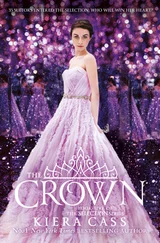Thomas Cook - The Crime of Julian Wells
Здесь есть возможность читать онлайн «Thomas Cook - The Crime of Julian Wells» весь текст электронной книги совершенно бесплатно (целиком полную версию без сокращений). В некоторых случаях можно слушать аудио, скачать через торрент в формате fb2 и присутствует краткое содержание. Год выпуска: 2012, ISBN: 2012, Издательство: Grove Press, Жанр: Криминальный детектив, на английском языке. Описание произведения, (предисловие) а так же отзывы посетителей доступны на портале библиотеки ЛибКат.
- Название:The Crime of Julian Wells
- Автор:
- Издательство:Grove Press
- Жанр:
- Год:2012
- ISBN:9780802194589
- Рейтинг книги:5 / 5. Голосов: 1
-
Избранное:Добавить в избранное
- Отзывы:
-
Ваша оценка:
- 100
- 1
- 2
- 3
- 4
- 5
The Crime of Julian Wells: краткое содержание, описание и аннотация
Предлагаем к чтению аннотацию, описание, краткое содержание или предисловие (зависит от того, что написал сам автор книги «The Crime of Julian Wells»). Если вы не нашли необходимую информацию о книге — напишите в комментариях, мы постараемся отыскать её.
The Crime of Julian Wells — читать онлайн бесплатно полную книгу (весь текст) целиком
Ниже представлен текст книги, разбитый по страницам. Система сохранения места последней прочитанной страницы, позволяет с удобством читать онлайн бесплатно книгу «The Crime of Julian Wells», без необходимости каждый раз заново искать на чём Вы остановились. Поставьте закладку, и сможете в любой момент перейти на страницу, на которой закончили чтение.
Интервал:
Закладка:
The surprise in all this was that despite the loss of his father and the rather haphazard and emotionally flat nature of his later upbringing, Julian had emerged with so solid, even sterling, a personal character. He had not received the intense moral education my father had provided for me-his many lectures on charity as the greatest of all virtues, his compassion for the poor and the disinherited, his deathless hope that the meek might one day inherit some portion of the earth. And yet, Julian appeared to have taught himself those very lessons, so that by the time he began to spend summers with me, he seemed already primed to receive the finishing touches of my father’s table talk-that is to say, his ancestral tales of men who’d fought under the banner of some universal goodness.
But why was I recounting Julian’s personal history? I wondered. What good would it do now?
None whatsoever, of course, and so I had no explanation for this bend in my mind, except that something in my latest exchange with Loretta had set me to considering Julian’s life in the way a detective might, as if he were a mystery whose disparate clues I was now trying to puzzle out. No, not a detective exactly, I decided, more like a writer seized by a mysterious purpose: Charles Latimer in A Coffin for Dimitrios listening as Colonel Haki describes the nefarious career of a strange Greek swindler, wondering what he really was, this dead Dimitrios, and as he listens, growing slowly, haltingly, and against his own better judgment, ever more determined to find out.
I thought again of the summers Julian had spent at our home in Virginia while Loretta either attended a theater camp in upstate New York or stayed at her aunt’s house in Connecticut. Those had been hot, languid days at Two Groves, days of fishing in the pond, canoeing down the river, reading together in the study, or listening as my father talked, mostly to Julian, about having a career in the State Department, one he expected to be very different from his own, Julian more what he called “the James Bond type” than he had ever been.
And this was true enough. There’d been a genuinely dashing quality to Julian. It was easy to imagine him swinging a polo mallet or leaping hedges on a black stallion. He had an ear for classical music and an eye for painting, but even these less muscular attributes did not detract from how very male he was. Both men and women loved him, and that, as my father once noted, cannot be said of many men. Sometimes he reminded me of Sebastian in Brideshead Revisited, equally favored by the stars. But Sebastian had lost himself to drink and thus lived his life in a blur of attenuated afternoons. Julian on the other hand was strictly spit-and-polish, ready to work and quick to pitch in, a young man who drank very little and whom I often found alone in our orchard, his back pressed against the trunk of a pecan tree, studying, it seemed, the crazy patchwork of the limbs.
From my great store of memories, I suddenly drew out the one of Julian visiting me at Princeton. It was a memory that lifted me, as if on the swell of some elegiac refrain, then drew me down again like sand in a wave, so that I was once again seated on my dormitory bed, alone, reading, of all things , A Sentimental Journey.
“Sterne hated Smollett, you know,” Julian informed me as he swung a chair around and sat down before me. “He said his travel writing was all ‘spleen and jaundice.’”
Tall and slender, he wore dark, well-pressed pants and a white shirt with both sleeves rolled up to just below the elbow. He’d done his share of sports at school, but what he gave off, more than health and raw competitiveness, was that confident American sense of not only getting what you want, but of getting it easily and, in a way, deservedly, as if it had been awaiting you all along.
“Are you really going to major in English, Philip?” he asked.
I turned to face him. “What’s wrong with studying English?”
“Nothing at all,” Julian answered. “But your life will be rather sedentary, don’t you think?”
And so it had turned out, I thought now, my life just the sort Julian had never contemplated for himself any more than he would have contemplated the darker one that had come to him after Argentina.
After Argentina.
Had it begun there, I asked myself, the downward spiral of Julian’s life?
The question brought up one of Julian’s abiding themes, the fact that in each life there are confluences, currents, and undercurrents, and that in some swim the Graces-Splendor, Mirth, and Good Cheer-while in others there are surely monsters. So it was in much of Julian’s writing, a chance encounter, a hastily spoken word, some idle conversation that might seem of no importance but which, for better or worse, changes a life forever. In The Tortures of Cuenca , it is the mundane selling of a lamb that ignites suspicions that ultimately lead to a great crime.
Crime , I repeated in my mind, then cut off any further thought along such lines as the corner of West End and Seventy-eighth Street came into view.
“That awning there,” I said. “The blue one.”
The cab drifted forward a few more yards, then stopped. I paid and got out. The building’s uniformed doorman nodded as he approached. “How’s your father?” he asked.
“Holding his own,” I answered.
“Give him my regards.”
The elevator was old and elegant, all dark paneling and brass, and in that way it struck me as oddly military, a device meant to convey the high command to some tower from which a general could survey the field. Curiously, this thought again returned me to Julian. This time it was his description of Waterloo, the day we’d walked the field together under the unblinking eyes of the Lion Monument. As we walked, he’d recounted the descriptions various travelers had written a few days after the battle, the field littered with bits of white paper, the stationery of two armies. They’d found blood-spattered love letters and letters to children, Julian told me, letters written by hands now severed by flashing sabers and cannon fire, a juxtaposition of images that suggested what his later writing would be like, slaughters, sometimes massive ones, described with a haunting poignancy.
This flash of memory made me briefly wonder if I were becoming a character out of Proust, poor melancholic Swann biting into a madeleine or tripping on an uneven paving stone and by that taste and brief imbalance propelled backward to times past. If so, I felt the need to shake it off, because at a certain point memory becomes a beach strewn with landmines, all life’s many losses buried in those sands.
My father was seated by the window, peering down at the rain-soaked street when I stepped into the living room. If he heard the jangle of keys as I entered the apartment, he gave no sign of it. His body remained still, his shoulders squared, his head upright, his eyes flashing with their customary fire.
“You’re tardy, Philip,” he said.
Tardy was one of those quaint words my father refused to jettison. To do so, he said, would be to surrender language to the whims of mere novelty. It was important to keep old things, he insisted, because it was through them alone that new things could be judged. He said this without rancor, and nothing in his demeanor suggested the crankiness of some old geezer bemoaning the loss of the five-cent cigar. Yet he was someone who fancied himself a defender of ancient values, and he’d often spoken of such things to Julian during those evenings when the two of them smoked cigars and drank port in the library at Two Groves, my father in full Socratic pose, despite the fact that he was hardly a man of great intellect.
But the wish to be wise is almost as valuable in a man as wisdom itself, and so I’d always admired my father’s goodness. Julian, more than anyone, had known the depth of my love for him. Once, as the two of us had walked the grounds of Two Groves, he’d slung a brotherly arm over me. “You’re lucky to feel the way you do about your father, Philip,” he said to me. “A man needs to revere someone.” Years later, in Salzburg, he talked about Mozart’s contempt for lesser talents: “A man with no one to revere, Julian said, is a man alone.” At that moment, he seemed to consider such loneliness the worst of fates, a sentence he would not have imposed upon the vilest man on earth. And yet, at times, I thought now, he had seemed to impose that very loneliness upon himself.
Читать дальшеИнтервал:
Закладка:
Похожие книги на «The Crime of Julian Wells»
Представляем Вашему вниманию похожие книги на «The Crime of Julian Wells» списком для выбора. Мы отобрали схожую по названию и смыслу литературу в надежде предоставить читателям больше вариантов отыскать новые, интересные, ещё непрочитанные произведения.
Обсуждение, отзывы о книге «The Crime of Julian Wells» и просто собственные мнения читателей. Оставьте ваши комментарии, напишите, что Вы думаете о произведении, его смысле или главных героях. Укажите что конкретно понравилось, а что нет, и почему Вы так считаете.












